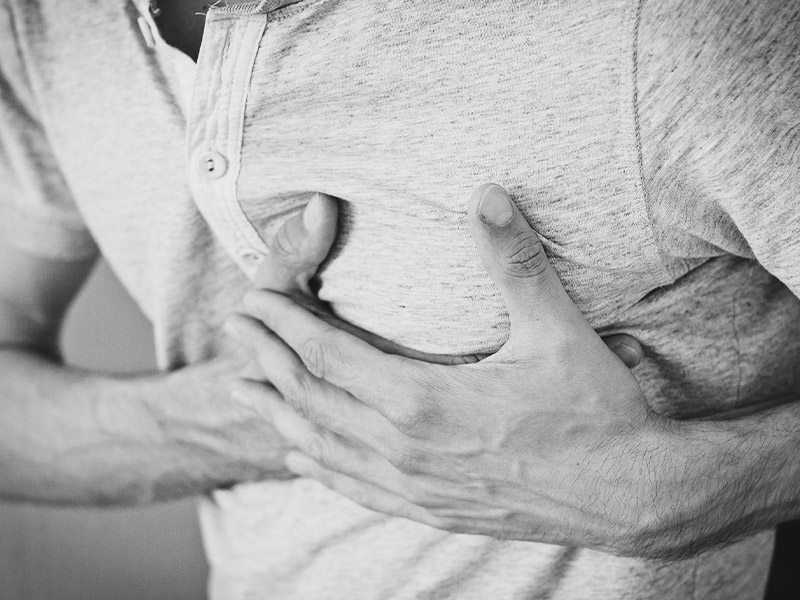If your heart has an irregular rhythm, you may be suffering from atrial fibrillation (AF), a relatively common condition that can have serious consequences. We find out all about it from Hong Kong-based cardiologist DR JO JO HAI SIU HAN.
What causes atrial fibrillation?
AF is a very complex disease. It can occur “de novo”, which means it happens on its own, or it can be associated with other conditions, from binge drinking to structural heart diseases. Depending on the cause, it can affect people from different age groups.
How common is it?
Rates of prevalence depend on how you screen people for it. AF is an interesting disease; it can happen in a paroxysmal form, where it comes and goes; or it can be persistent, or always there. In this persistent form, it’s easy for a doctor to pick up. If it comes and goes, we mightn’t pick it up so easily – particularly if a patient doesn’t have symptoms.
Having said that, the prevalence has been reported as one to four percent – really quite significant. It affects the
elderly the most, because many of them have existing cardiovascular diseases such as hypertension or coronary artery disease. If you count people aged from birth to 60 years, the prevalence is around one to two percent. By the age of 80, 10 to 20 percent of people will have AF.
Is tachycardia the same as atrial fibrillation?
Tachycardia literally means a fast heart rate – usually a heart rate above 100 beats per minute is described as tachycardia. However, this can be caused by many conditions. For example, when you’re anxious or when you’re exercising, you have a physiological form of tachycardia.
AF, on the other hand, is not physiological, it’s pathological; this means the heart can beat quickly, but without a “need”. So, in patients with AF, the fast heart rate happens without them needing it – and that’s the problem.
Can a person “feel” symptoms of atrial fibrillation? When is it time to see a doctor?
Not all patients have symptoms. About 50 percent can be totally asymptomatic. On the other hand, some can be very symptomatic – they can have palpitations, where it feels like the heart is racing, or they can experience chest discomfort. Some can just feel like they can’t do as much exercise as before, or they get tired very easily. If you feel like you have any of these symptoms, you should seek medical help.
Patients who are completely asymptomatic might only seek help if they develop symptoms associated with the complications. For instance, AF can cause a stroke. These strokes can be very minor and transient – a person might lose vision on one side for a couple of seconds, or they might just feel weakness on one side for a few minutes. In worst case scenarios, the stroke can be major and result in serious deficits. If these symptoms arise, their doctor should be made aware.

Can atrial fibrillation cause permanent damage?
Yes, if untreated, AF can result in damage to the heart and other systems. Both the paroxysmal and the persistent forms of AF can result in stroke. If a patient doesn’t have any symptoms and is not getting any AF treatment, this can end up causing heart failure, and the function of the heart can deteriorate as a result.
In some patients, there is underlying coronary artery disease – narrowing of the vessels supplying the heart. Then, when AF comes, and if it’s very fast, it can increase the demand of the heart; when that demand can’t be met by the supply of the coronary arteries, it can lead to a heart attack.
Can drinking coffee or working out trigger arrhythmia?
Caffeine is a controversial one. Some studies have reported a protective effect of coffee; others have found it to be neutral; and one study found that coffee worsens AF. It may not be the caffeine itself that’s causing the problem, but something else in the coffee.
It’s a personal thing. If you drink coffee and you feel palpitations or other signs or AF, you should stop drinking it. If you drink it and you feel completely fine, there’s probably no need to stop.
And exercise?
Exercise is also a tricky one! A little bit of exercise is better than nothing, and moderate exercise can reduce your risk of AF. On the other hand, among endurance athletes, the risk of AF actually increases by two- to seven-fold – which is quite a lot. Some people think this is because of the damage to the heart imposed by endurance exercises.
I usually encourage my patients to do exercise, but not too much. In sedentary patients who already have AF, exercise usually reduces the problem and improves the situation.
Can other things cause atrial fibrillation?
The one thing that is most associative with AF is drinking alcohol. And it’s not just binge drinking; even a moderate consumption has been shown to increase the risk. If you drink about one unit a day, it increases your likelihood of developing AF by around eight percent.
What kind of test is done to detect atrial fibrillation?
In patients with persistent AF, an ECG is sufficient to pick up AF. It’s more difficult to detect in patients with paroxysmal AF, because on the day they go to see the doctor they might not have symptoms. One option is to wear a 24-to-72-hour cardio monitoring device to pick up the AF. People who experience AF very rarely – a couple of times a month or a couple of times a year – may need something else. For them, there are devices that can record their heart rate spontaneously – watches, apps and so on.
Patients who are completely asymptomatic but worry they might have AF can get an implantable device placed under the skin – it’s very small, and the procedure is very easy. This device can record the heart rate of patients for three years, without them even noticing.
What are the treatment options?
Treatment depends on the symptoms and severity of the condition. Some patients
are fine with their AF and only need on-demand medication when they have symptoms. Others may need medications every day. Patients with serious AF that fails to convert back to normal may need an electric shock, which is given externally to restore the original heart rate.
Patients for whom medication fails may need other forms of treatment. For example, catheter ablation involves passing a very thin electrical catheter through the femoral vessels back to the heart to apply energy, helping to eradicate or at least control the arrhythmia. Other patients may need a pacemaker put in.
Are there lifestyle changes our readers could make to minimise the risk of atrial fibrillation?
Moderation of alcohol consumption is very important. In fact, in patients who have mild AF, I sometimes just encourage them to quit altogether. Doing exercise is another obvious one – but make it moderate, rather than very strenuous exercise every day. Weight loss, especially in obese patients, can reduce the risk of AF too.
Dr Hai is Clinical Assistant Professor in the Department of Medicine at The University of Hong Kong, and a cardiologist at Gleneagles Hospital Hong Kong.
See more in our Health & Fitness section.






